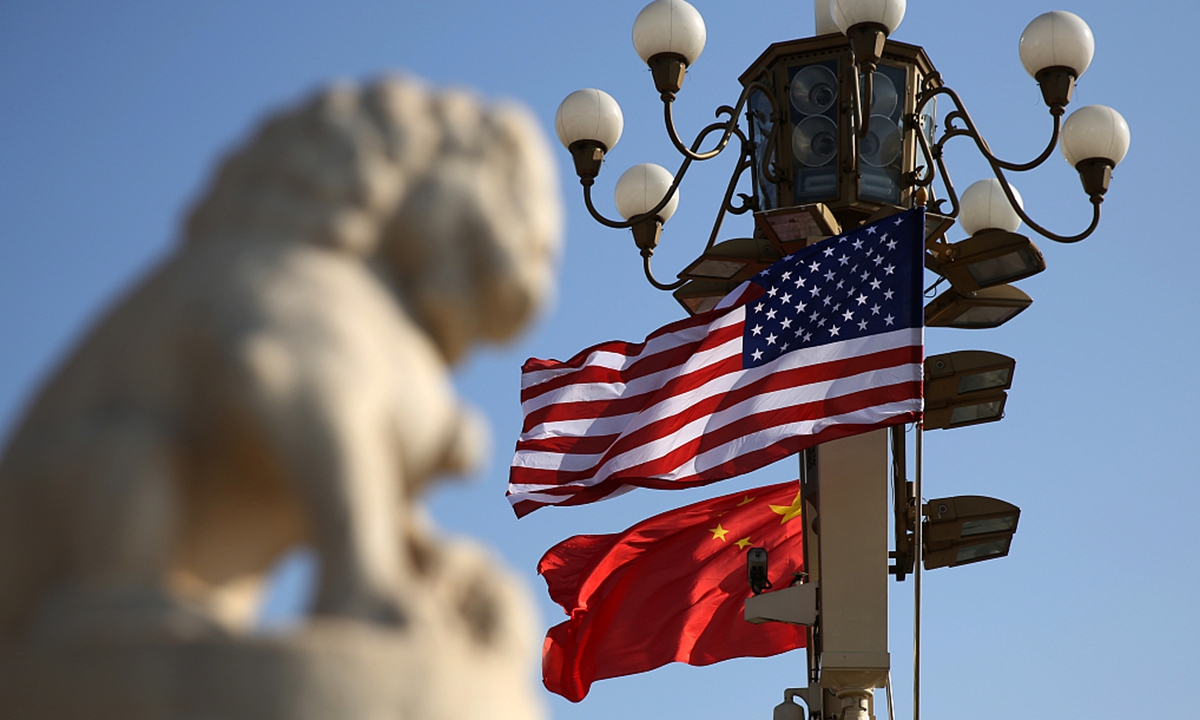Biden is obliged to end the trade war with China sooner

US President-elect Joe Biden on Wednesday offered the clearest signal of his approach toward the multi-year trade war and overall economic and trade relations with China. In a wide-ranging interview with The New York Times, Biden said that he would not immediately remove tariffs on hundreds of billions of dollars worth of Chinese products against WTO rules, and that he would “consult” with US allies to develop a “coherent strategy” against China.
Biden’s remarks came as no surprise to many given the current toxic US political climate in which some elected officials are competing over who is the toughest on China rather than who can deliver the greatest benefits to ordinary Americans, through constructive engagement with the world’s most populous country and second-largest economy.
However, while the “tough” remarks might cheer up some anti-China US political and media elites, it represents bad news for many businesses in both China and the US, which have been bearing the brunt of the trade war, it also damages both economies and indeed the global economic climate, which is facing unprecedented challenges posed by the COVID-19 pandemic.
Biden, who has been in US politics for decades, should be fully aware of the devastating effect of the tariffs on the US economy. Still, it is imperative to remind all that the tariffs have been ruled illegal by the WTO, and have been widely deemed to have cost the US more than gain.
Forbes reported in June that the trade war had cost US company over $1.7 trillion in stock losses. The Washington-based think-tank, the Tax Foundation, estimated that the tariffs could reduce the country’s long-term GDP by 0.23 percent, wages by 0.15 percent and employment by 179,800 full-time equivalent jobs.
Some 3,500 US businesses, including big corporations including Tesla and Ford, have filed lawsuits against the Trump administration over the tariffs, which they claim to be unlawful.
For Biden, who will face a long list of daunting challenges including a raging COVID-19 and an economic recession, leaving the tariffs – a legacy of Donald Trump – in place would actually hamper his efforts to make good on his promise to US voters: to rebuild the US economy. Put in blunt terms, Biden cannot afford an ongoing trade war with China.
Biden also appeared to be aware of that reality, as he suggested that he would “try to get us back on the same page with our allies” to form the “best China strategy.” That is also no surprise, given that Biden was the US Vice President when the Obama administration pushed for an Asia-Pacific Rebalance strategy to contain China.
However, the world and the Asia-Pacific are in very much different shape now. Most notably, without interference and disruption from the US, a more visible spirit of cooperation has emerged. Last month, China and 14 other Asia Pacific economies, including US allies such as Japan and South Korea, signed the world’s biggest trade pact, Regional Comprehensive Economic Partnership (RCEP).
China is in talks with many countries and regions for more free trade and investment agreements, including a China-Japan-South Korea free trade deal and a China-EU bilateral investment treaty. China has even indicated its interest in joining the CPTPP.
Biden may be more popular among US allies compared to Trump, but he cannot rectify all the damage done by the current administration’s toxic “America First” policy and, more importantly, will be unlikely able to stop other countries from pursuing win-win cooperation with soon-to-be the world’s largest market, particularly at a time when the US is in a confluence of crises ranging from the coronavirus, to economic crisis and profound social and political division.
Those crises would also undercut, if not prevent, Biden from pursuing his stated goals of “investing in America first.” As part of building “leverage” over China, Biden said he would develop “some good old American industrial policy” with massive, government-led investments in research and development, infrastructure and education. However, given the current crises as well as the bipartisan politics, Washington cannot find the political will to pass a stimulus package to support poor families and struggling businesses.
Pursuing a more constructive relationship with China might not be able to help the US solve all its challenges, but it certainly would help both countries and benefit the entire world. For the sake of rescuing the US economy and creating badly needed jobs, the incoming US administration will be obliged to stop the trade war and bring China-US trade ties back into balance.
RELATED ARTICLES:

